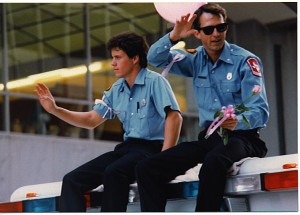 Everyone Heard, But No One Listened
Everyone Heard, But No One Listened
Robert O’Donnell was a young and unassuming hero. In the moments that followed Baby Jessica’s rescue, he would skyrocket to fame. Reporters had descended on Midland, Texas, to cover a precursory narrative of what would either be victory or tragedy. The rescue, though, had a happy ending on a cool Friday night in Oct. 1987. As the weeks, months, and years followed, however, O’Donnell would remain fixated on his status as someone who triumphed when it mattered most.
Asked to recount and tell of the moments when he plucked Baby Jessica from a certain doom, O’Donnell delivered. For some, the incessant responses to incessant requests were avoidable though a spotlight O’Donnell sought. He told friends and family, however, that they constant response was merely his effort to be polite and forthcoming. Who was he to turn down questions for developing news stories?
Over time, though, his embrace and focus on the hero narrative divorced himself from the reality of his role with his fellow EMS-firefighter brethren.
Excerpt: Chapter One “Those People Are Going To Need Some Help For A Long Time”
April 23, 1995 — Robert O’Donnell was in the deepest of a string of deep funks. The fireman-paramedic turned asbestos removal technician had failed at everything he had done of late. Everything, that is, but being a hero. From that lofty perch there was no place to go. No place but down. And, he had done that too.
On this night, he slumped low in a chair at the home of David Poe, his stepfather, who 20 years earlier had married his mother in a gaudy Las Vegas chapel. At 37, O’Donnell was on his third career. His second — as a paramedic and fireman — had brought him the greatest rewards. It was the one he was best — and worst — at.
Hoping the worm had finally turned, O’Donnell was three days into a new career with Lubbock’s King Consultants, a low profile company specializing in the removal of asbestos from 1940s and 1950s era buildings, constructed during the days when the fireproof insulation was touted for its safety and durability and before its cancerous health affects were fully known.
His fellow employees at King hardly knew him. He was just another face in the crowd, a new hire learning the ropes. Few, even among his supervisors, knew of his previous heroics. He was eight years removed from that balmy night in Midland when he descended a rocky hole to save a little girl’s life, becoming for a moment a national superstar. Time had moved on and memories faded.
Tonight, O’Donnell could see the end of the line.
Television wasn’t helping his mood much either. From the set at his mother’s home, horrific images spilled into the living room. Three days earlier, a military veteran malcontent had declared war on his own country, exploding a rented Ryder truck in front of the federal courthouse in Oklahoma City — taking 177 lives in a flash, while calmly walking away.
The death and carnage spewing from his mother’s television set on this evening only sent his mood to darker recesses.
O’Donnell was resting hard and trying to feel at home in his mother’s house. Pointing to the collection of images flickering from the television set, his mom, Yvonne, recalls the words that followed: “Those people are going to need a lot of help for a long time,” O’Donnell says. In retrospect, its obvious the tattered hero was speaking not of the rescued—but the rescuers. Everyone heard, but no one listened.